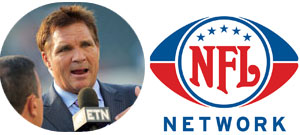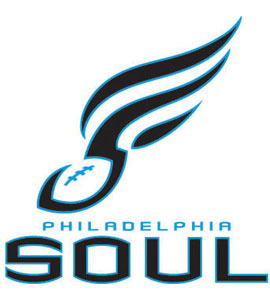EAGLES EAGLES EXECUTIVE VP OF FOOTBALL OPERATIONS HOWIE ROSEMAN PRESS CONFERENCE JUNE 16, 2016
admin
 Cox has played and started all but one game for the Birds and has strung together 49 consecutive starts (including postseason) over the last three seasons.
Photo by: Todd Bauders
@Todd Bauders Photography
Cox has played and started all but one game for the Birds and has strung together 49 consecutive starts (including postseason) over the last three seasons.
Photo by: Todd Bauders
@Todd Bauders Photography“Thank you guys for coming in today. I know this is a time of year you guys are normally with your families. Appreciate that. First want to congratulate Fletcher Cox. Really excited to have him here in Philadelphia for a long period of time. He’s a great player and he’s someone that we can build around on and off the field; his leadership, his work ethic, his fit on and off the field, really excited about that. Also want to congratulate Todd France and Rich Hurtado who did this deal, and [Eagles Director of Football Administration] Jake Rosenberg and [Eagles Senior Vice President, General Counsel] Aileen Dagrosa, who their patience and their hard work, this would never have been done.
” Q. I think the number is 280 million in guaranteed money that you guys have given out during the off-season to free agents, your own guys, a bunch of quarterbacks. What are the pluses and minuses of making that kind of commitment in one off-season and does it paint you in a hole at all in a corner as far as that kind of commitment?
A. “Well, first, I want to thank Jeffrey for buying into our plan, our vision, for being supportive of it. It’s a lot easier when you go to your owner and you talk to him about what you’re going to be doing this year, how you’re going to be improving the team in this moment and in this year. But instead, we went to him with a plan that hopefully not only makes us better this year but makes us better for a long period of time. In terms of how we were thinking about it, when we sat down and looked at our roster, we felt like there were a bunch of players we wanted to keep here. And for us to have a run of sustained success like we were fortunate to have from 1999 to 2008 where we went to five championship games that we needed some continuity. There’s been a lot of change; I take responsibility for a lot of change that has been made, but going forward, we’re hoping to not have that change. And the longer that we wait on contracts for players, the closer they get to free agency, the more it’s going to cost us. It’s just the nature of the game. So we were hopeful that with this plan, by signing guys that we didn’t want to ever leave the building that going forward, maybe we would be able to keep one or two more guys because as they get closer to free agency, the more expensive they are going to be. That requires doing some things early.
That requires some risk on our part. But as we look at what our team looks like going forward; and the second part of this is obviously we don’t have as many draft picks as we’ve had. So knowing that we have holes filled and we do look at our 2018 depth chart, we do look at our 2019 depth chart, we knew that we had to get a little uncomfortable for this season and next season, really, to build something that hopefully lasts and gives us a chance at being a really good team again for a long period of time.”
Q. Among the players who get this type of contract, most play quarterback. What made you think Fletcher Cox deserves to be in that group?
A. “Well, the first thing you do is you turn on the tape and when you watch Fletcher Cox and you watch what he’s doing, maybe in a scheme that didn’t ideally fit all his best traits, he’s got all the tools. And then we drafted him. His character, his work ethic, his leadership ability; we can build around Fletcher Cox. And the market is what the market is. You can try to distinguish this guy or that guy but it’s hard to do that when there’s more than one guy. We feel like it’s just going to go up for him and that we’re never letting him leave the building — and these are all his prime years. So when we looked at all those factors, it’s a hard pill to swallow because of what you said, but it’s also hard to find players that can change the game on either side of the ball and then represent what you are about. When I talked to Fletch when we did this, he’s got a chance to be a great player in the history of this franchise, and our responsibility is keeping as many great players as we can.”
Q. It sounds like the talks with Fletcher were going on for some time. What made it happen now? What made it come together and how do you think the contract stacks up in terms of market value?
A. “I think I just said yes. You look at the contract, it wasn’t a leverage game here because we understood that at some point we had to get him under contract long term to build the kind of team that we want to build here. So it did go for a long period of time. I feel like we fought the good fight and we really tried to do the best we could so we can keep more players around here. But at the end of the day, we need Fletcher Cox going forward. We need that player in the middle of our defense. We believe in getting pressure on the quarterback and preventing pressure on the quarterback and he can do that for us.”
Q. Is defensive tackle position that you can build around, we’ve heard before about Andy Reid, and you come from that school of defensive end being more important, cornerback being more important; is that a position that you can invest that amount of money into?
A. “Yeah, I think when you look at Coach Reid and what he believed in, we took Corey Simon extremely high. He always believed in interior pressure. When you’re a quarterback and you get interior pressure, that’s hard. You’re not able to step up in the pocket. It’s really hard when you look at building your team because when you have great offensive tackles, you can scheme against great defensive ends — I’m not telling you they are not equally as important; they are. But when you can get pressure up the middle and in a quarterback’s face, it’s hard. It’s hard for them. It makes them uncomfortable. I think this is something that we always believed in. There were very few guys that are this big and this athletic and have this kind of motor that are ever born, let alone play in the National Football League.”
Q. Were you ever pretty far apart at one point and at what point did things really start to heat up? And also, were you kind of worried that this might drag on into training camp and beyond maybe?
A. “As more contracts, as the market continued to get set and other players got signed, the price tag started going up and that was our concern going forward; that with every contact done over the next six, nine, 12 months, for a guy that we wanted to keep here. And as leverage shifts, as you get closer to your ability to be tagged, it would make it harder and harder for us to do the deal. So we were far apart but it came together fairly quickly here in the last week. They did a great job of kind of telling us the main points that they were concerned with and we tried to give them the same thing on our end. But really excited that he’s here, and really, when we look at our off-season, having all these guys that we’ve drafted or have signed and brought in here and fit our system, our style; or veterans that we’ve been able to keep, I think that’s kind of — in our opinion, that’s the message of the off-season.”
Q. You mentioned getting Jeffrey to buy into this plan of keeping guys here you wanted here and you’ve referenced Andy and wanting to sustain success the way did you in the early 2000s. Part of that was being able to walk away from guys maybe a little bit early. How has that time informed what you’re doing now, because to an outsider it seems like you’re in a way doing the opposite; you’re making sure you don’t lose guys who were key parts of your team.
A. “Well, when you look at the majority of the guys that we’ve signed, they are second-contract guys. They are guys that are 25 and 26. But even when it was Coach Reid and Joe, they had a philosophy of extending guys. I think Troy went into his third contract. Brian Westbrook went into his third contract. [Jon] Runyan went into his third contract. I’m probably missing a couple guys. But there are unique players that kind of transcend where they are in their careers because of the leadership they bring, because of the skill set they bring. So when you look at our team right now, it’s probably Malcolm [Jenkins] who is still 28 years old, and [Brent] Celek, who is what we represent and it is who we are. There have to be exceptions to every rule. But I wouldn’t even pull on just our example. When you look at the Giants, the Steelers, the Colts, the Patriots, the Packers, the Seahawks, they have a core group of guys, a big core group of guys that they are building with together; they are going through things together. That strengthens your team. That strengthens your bond. The last point on this is not only does Jeffrey deserve a tremendous amount of credit for buying into it, but our coaching staff, starting with Doug. You’ve got a new coaching staff and you could spend this money on other teams’s players and other team’s free agents, but they bought into this, as well, and they were excited about it.”
Q. Fletcher is like five years in, he’s 25 years old, and he had a monster year last year but when did you see him actually come on as a player and develop to where he is now?
A. “When he stepped on the field for his first mini-camp as a rookie, you saw he was a unique animal. He’s got such unbelievable physical tools and then he’s got this work ethic, and a feel for the game that’s rare. It’s hard to find. So he continued to get better. When you look at the schemes that we’ve been in, as a rookie playing in a 4-3, I think he had five, five and a half sacks as a rookie and then going to a 3-4 two-gap read and react and still being able to get pressure. And the way he’s able to get pressure is he’s not one-dimensional. So he’s not just going to win with explosiveness off the ball. He’s got a club. He can win with power. He can win with athleticism. That’s really hard to find. So his unique skill set on and off the field; and then what he represents to us. It’s important that we have players that represent the front of the jersey and he does that.”
Q. You and Doug were both very clear through this whole process that you had to have him back, which is kind of unusual, because you probably maybe lose a little leverage when you do that.
A. (Jokingly) “Yeah, probably got to learn from that one.”
Q. What went into that?
A.It seems it was very important that you made him know you wanted him. What went into that? Because that’s different than how usually approach these things. “We’ve had so much change here in the short term, and one of the things that when you’re trying to build something you need is people to feel secure in how they feel. We didn’t want him at any point — it wasn’t an easy negotiation and they were back and forth, but we didn’t want him at any point to feel other than how we truly felt, which is that he’s a huge part of what we’re trying to build and trying to do. And a lot of that is not only on the field but off the field and how he handles himself. When you get into negotiation, sometimes that can be taken out of context and so we wanted to be very consistent in that message about how important it was for him to be back here and for us to sign him. And we felt very good about that.”
Q. During Jeremy Maclin’s negotiation, a lot was made of Chip not reaching out to him and making him feel really wanted. Was this kind of a direct response to things that had happened during Chip’s tenure.
A. “This has nothing to do with that. This is just how we wanted to conduct business going forward.”
Q. How important was Jim Schwartz being here and his history with three-techniques and how successful he’s been with that?
A. “Well, I think no matter who was here — and we’re excited about Jim and glad he’s here. But no matter who was here, they were going to look at our defense and watch the tape and feel pretty good that Fletcher changes the game, and he changes how people block us and how people game plan against us. But at the same time, understanding that this scheme is predicated on getting pressure, on getting to the quarterback. It’s hard to think that his value was going to go down in this game. You look at who Jim’s had. He’s had [Albert] Haynesworth, he’s had [Ndamukong] Suh, he’s had [Marcell] Dareus. He’s made some guys a lot of money.”
Q. You guys traded up a couple spots to get Fletcher. What do you recall about that night? Was it as insane as it potentially could have been?
A. “Well, it’s an interesting story. It’s one of my favorite stories that we’ve had here. We had a couple of guys and it was just a couple, that we felt like we had to have one of them, picking 14th and defensive players and Fletch was obviously one of those couple guys. We felt like he was probably — it was far-reaching to think that he would get close to the trade that we had made prior to the draft with Seattle. We had agreed with Seattle that if one of our guys was there, that this was the compensation. It was the night before. They were comfortable with it; we were. But we didn’t really anticipate Fletch being the guy that would have been there. I think the Cowboys traded up into the sixth spot. And as it went and as guys started to fall, and he started to fall, we continued to try to investigate moving up, because we didn’t think there was a chance that he would even get to 12. When he got to 12 and we were ready to make the pick, we had agreed on the trade, and then we got a call from another team offering us to move back for a future 1. And so we just kind of took a minute and just thought about Fletcher and what we projected him to be. And if he was that, how would we get that guy again. And all around the room, everyone agreed that to get a 6-4, 310-pound guy, 35-inch arms, powerful, athletic, great character, we’d have to pick in the Top-5 — 21 years old. For us, even if that future one was a 12 or 13 or 14, we thought it was a unique opportunity that we were able to get that kind of guy, so we just kind of made the pick.”
Q. There was some pretty serious allegations that came out towards Nelson Agholor last week. Wonder if you can update us on what the team knows on that front and are you guys confident that he is the only one that’s being looked at for potential criminal activity and not the other two guys that were there including Fletcher?
A. “Unfortunately I can’t comment on an ongoing investigation. Appreciate the question but I have no comment on that.”
Q. I just wanted to know: Will Agholor be here in training camp? Do you anticipate him being here? “
A. I just go back to my initial answer. I apologize, but it’s an ongoing investigation and I can’t comment on it.”
Q. You guys spent a lot of money this off-season to keep guys who were already here, all of those guys were part of a team that went 7-9 last year and that faded down the stretch the year before. So was Chip the big problem then, if you guys had all these good players, why weren’t you better?
A. “Well, I think that’s a fair question. The honest answer is we were 7-9 and we’re not sitting here and talking about being the ’85 Bears that were this dominant team. But when you look at the teams that are really good teams and have a chance to be great teams, it’s because they have a core group of players that they keep together. And when you’re changing guys in and out and you’re losing good players that you invested draft picks, it’s hard to build anything.
It’s hard to sustain anything, and so we know we have a lot of other areas that we have to improve. Again, it would have been much easier from all of our perspectives to invest in guys that could just make this year’s team better. But we felt like we had to put ourselves in a position to have at some point a run of success where it’s not just piecemeal year-to-year. So I think that’s fair. You’re talking about — you’re not talking about a team that has just won the Super Bowl and we have a lot of work to do here. But we can’t do it without good players. We have to keep our good players and then build layers on top of it.
The last point on that, too, is when we went back and looked at the last few years, teams are keeping their own players. Free agency isn’t what it was even five or six years ago. So how are you getting good players? You’ve got to keep your own, you’ve got to draft well and then hopefully augment it in some way with free agency or trades. But that free agency aspect is getting harder. It’s getting more competitive and that was part of our calculation.”












